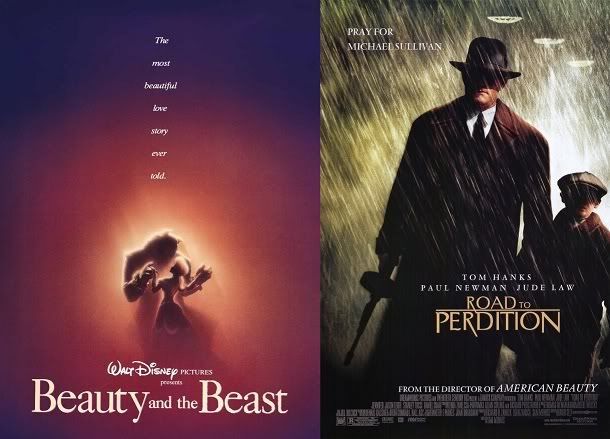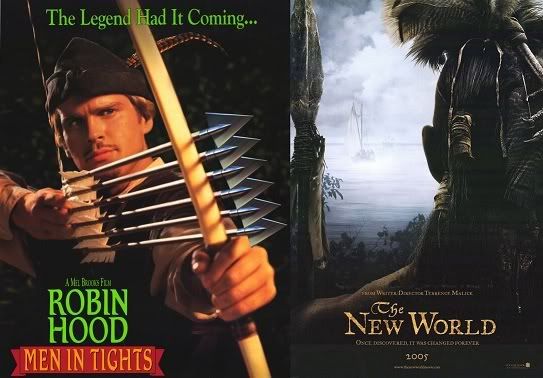I really enjoyed this movie because it spoke to me on a personal level. I am a fan of Jarmusch's work, although I have only seen Broken Flowers,Down by Law and part of Coffee and Cigarettes. I enjoyed the esteemed role literature played in this film, especially in two contexts: high brow philosophy or religious lore, and low brow genre fiction. I was intrigued at how Ghost D incorporated the teachings of Hagakure into his life to such an extent that he is willing to die for his beliefs. I found it equally humorous that Jarmusch was willing to equate mafia dogma with cartoons, and used the conflicting texts to elevate Ghost D to a hero.
Of course, Jarmusch, like Wes Anderson, has caricatured his characters to such an extent that the viewer could be drawn away from the resonance of finding parallelisms between gang life and slapstick cartoons. But would we take Ghost D seriously if he was regularly tuning into Bruce Lee or David Carradine? I think not. His theme song for each drive is pretty hilarious too in its unassuming attempt to be cool, ie "I wear my sunglasses at night." Hence the use of cartoons to show the absurdity of the middle aged mafia men (and in Ghost D's case, mixes for each shoot out) caught on upholding their family, and the praise of the solitary figure who sustains his own nuclear regime of misunderstood outliers via shared ice cream cones and classical literature and a multicultural approach to language: in spite of any language barrier, Ghost D is grounded enough to get Raymond, Pearline and Louie. Perhaps this telepathic sense could be attributed to Hagakure, but I think it's more of a trope used to gain the trust and sympathy of a world weary audience who may humor Raymond or Pearline if they met them in real life, but depending on the context, would fear for their lives. I'll try not to get into class or race issues, although it's rampant throughout the film.
Back to the emotional effect Ghost D had on me. I gravitate towards films which rely on books as the central theme, and I think Jarmusch has effectively conveyed how we read texts on a strictly subjective level, to such an extent that what Heraclitus says is true: history is "finding out for oneself," going beyond the cultural context of any text (which I consider to be film, artwork, books, clothing, songs, what have you) and seeing it as an extension of yourself. Hagakure enables Ghost D to overcome the dangers of ghetto life, and in a way, reframes the power structure between him and Louie, who saved his life when he was a youth. Ghost D constantly reiterates his role as Louie's retainer. Unfortunately, the actual text is interposed so much that the viewer is unable to find a way to relate to Hagakure or Frankenstein or Rashomon on a personal level. I did at one point, but that's it. But the ending saved it for me. Here's why.
If anyone recalls Tom and Jerry or The Muppet Babies, you'd only see the feet of the adults. Now, Tom and Jerry is more pertinent in this instance because the mafia men watch derivatives of good guy, bad guy, cat and mouse, etc. In the last scene, we see Pearline crouched on the kitchen floor, with her mother walking in as she reads Hagakure to herself. Note that the child is focusing not on the more esoteric concepts, but the lunch boxes that were part of an ancient ceremony. Sadly, I can't remember the exact quote (ha! because it was the only one not flashed on the screen, dammit! =p), and here is where Jarmusch's heavy handed use of text based clues goes too far. We see Pearline in a contrived setting, ignoring the domestic sphere ordained for her unless she strives for an education (and this analysis may be too contrite as well. Here Pearline mirrors Ghost D, but the uncanny idea of her noting lunch boxes in feudal Japan is lost in the crowded scene of her mother's legs and voice. In this instance, Pearline is the deviant mouse in training, but the samurai is nowhere to be found, nor is the mafia feline that wants to take her out. We have a chiding mother figure, and a cramped kitchen space. It's possible that Jarmusch sees Pearline as the last bastion of pigeon loving hit men. That, or he's showing the absurdity of holding children to such high standards.
One has to wonder about a grown man such as Ghost D sharing Hagakure or Rashomon with this girl. But in an idealized mentor/mentee relationship, as attested throughout the film, knowledge must be passed down in hopes of preserving not only each other, but ensuring a progeny of contemplative bad asses who can usurp corrupt patriarchs. Yet Ghost D, in spite of his erudite bent, has to survive like anybody else. He kills to live. I'm curious if Pearline or Raymond have the same odds of survival, and if their appropriation of texts will disrupt their alienation anymore than Ghost D. I doubt it. Jarmusch gives us a taste of hope, yet leaves us with the man building an ark on his rooftop, and later on, a girl reading a book on the kitchen floor. Both look crazy, and it's no wonder. Samurais and arks won't stop the flood. Once again, Jarmusch refuses to let the underdog triumph, in spite of his or her noblest intentions (cf. Bill Murray in Broken Flowers). Thanks for reading!


Ha ha, btw, I give this movie 4 out of 5 stars.
ReplyDeleteI give this thesis an A!
ReplyDeleteI give Sven an A+ for awesome.
ReplyDelete